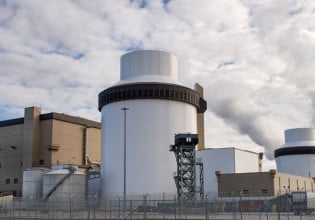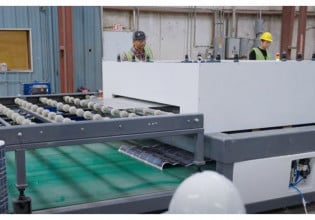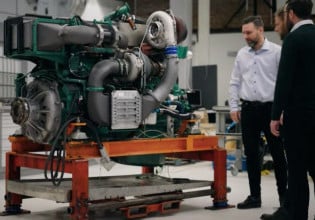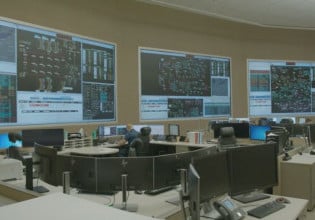Infineon Renews Efforts in Quantum Computing
Quantum computing is still a relatively unexplored horizon, but many technology giants have started to explore this technology in the hope of drastically improving computers’ calculating power and capabilities.
Infineon is one of such companies and has in the past few years collaborated on a number of research projects focusing on quantum computing.
At the end of last month, the semiconductor manufacturer joined QUASAR, a project focusing on the development of silicon-based spin qubits.
A computer-rendered image picturing a quantum processor based on superconducting qubits. Image used courtesy of Infineon and ©Chris Hohmann.
Quantum Computing: An Overview
Generally speaking, the expression quantum computing describes a system that uses quantum mechanics to calculate outputs.
From a physics standpoint, quantum typically describes the smallest possible discrete unit of any physical property (usually properties of atomic or subatomic particles, such as electrons, neutrinos, and photons.)
Qubits are then the basic unit of information in quantum computing, much like bits are in traditional computing. While they are similar in the role, however, qubits and bits display very different behaviors.
In fact, while bits are binary (can hold only a position of 0 or 1), qubits can potentially hold a superposition of all possible states, taking advantage of properties like entanglement, and quantum interference.
This, from a computing perspective, translates to the ability of quantum computers to calculate exponentially more information, at much faster rates.
Typical applications of quantum computing machines so far include cryptography, machine learning, and unstructured data searches, among others, but the technology could be used to solve many real-world problems.
Quantum machines could, for example, calculate simulations of complex molecules for the chemical and pharmaceutical industry, perform complicated optimizations for the automotive and aviation industry, or compute new findings from the analysis of intricate financial data.
Advancing Quantum Technologies
To research these technologies further, at the end of January, Infineon Technologies AG joined forces with the team behind the “German Quantum Computer based on Superconducting Qubits” (GeQCoS) project.
Comprising scientists from five research institutes in Germany, GeQCoS was funded by the German Ministry of Education and Research (BMBF) with 14.5 million euros.
The project has the objective of developing a quantum processor based on superconducting qubits and demonstrating its capabilities on a working prototype by the end of 2025.
The GeQCoS collaboration brings together expertise from Walther Meißner Institute of the Bavarian Academy of Sciences and Humanities and the Technical University of Munich, the Karlsruhe Institute of Technology, the Friedrich Alexander University of Erlangen-Nuremberg, the Forschungszentrum Jülich, and the Fraunhofer Institute for Applied Solid State Physics.
Infineon joined these institutions to provide its expertise as a semiconductor manufacturer to the project and develop methods for the mass production of micro-structures.
The company is also part of another quantum development-oriented project dubbed PIEDMONS, and focusing on ion trap-based quantum computing.
Infineon Joins QUASAR Project
Two weeks ago, Infineon renewed his efforts in quantum development further and joined the QUASAR project.
Funded by BMBF as part of the program "Quantum Technologies - from Basic Research to Market", QUASAR aims to set the foundations for the industrial production of quantum processors.
Over the next four years, and under the supervision of Forschungszentrum Jülich, Infineon will collaborate with scientists from the Fraunhofer-Gesellschaft and the Leibniz Association, the universities in Regensburg and Konstanz, and the quantum start-up HQS.
From a technical standpoint, when considering silicon-based qubits, quantum information is encoded by the spin of electrons, which are in turn positioned at so-called quantum dots, particular semiconductor structures with nanometer dimensions.
To interconnect the qubits, scientists use so-called quantum buses that enable the transport of electrons in a controlled manner over distances of up to about 10 micrometers while also retaining the quantum information.
The technology has already been developed by Infineon in collaboration with quantum scientists at RWTH Aachen University, thus paving the way for a scalable architecture for corresponding quantum processors.






